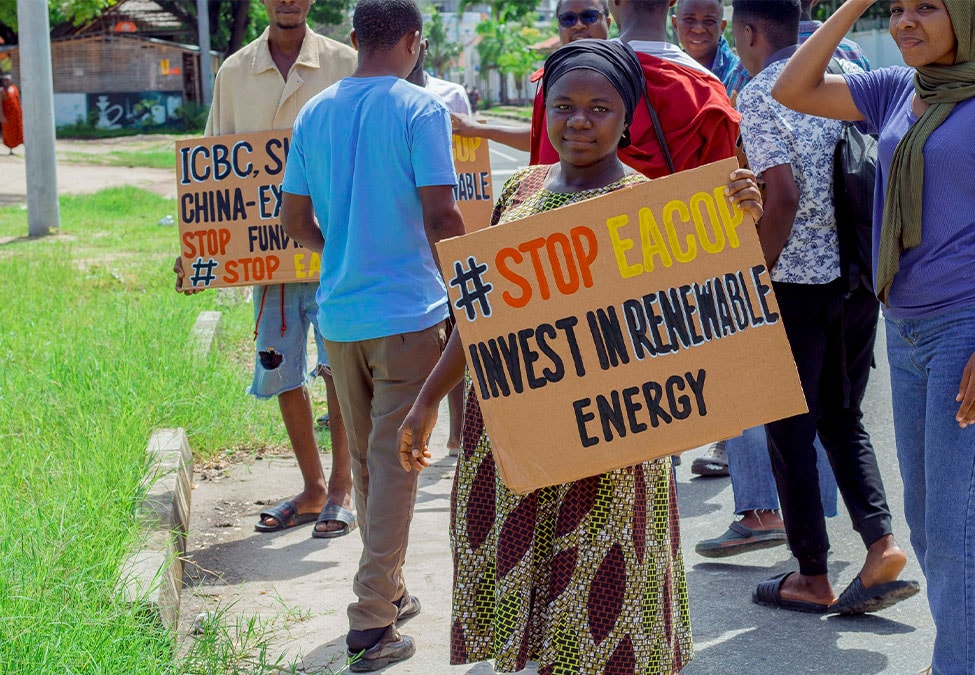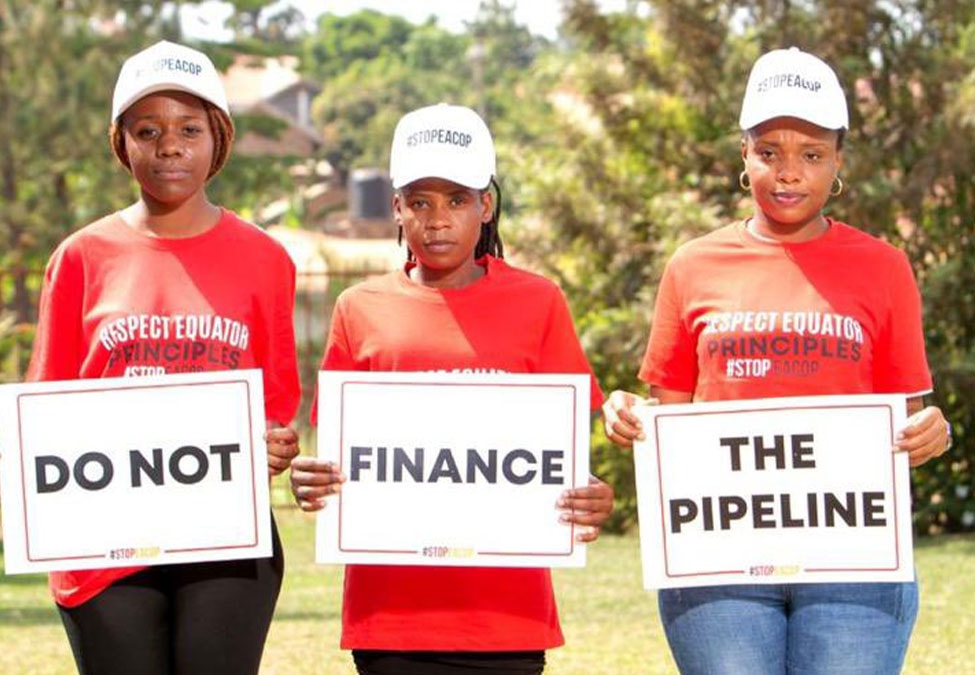In 2023, Global Greengrants gave over $900k in just-energy-transition-related grants to 128 groups in 46 countries.
"The promotion and or further development of oil, gas and coal should have no space in African countries. We need to shift to clean energy projects that are people-centered and would benefit local communities first and foremost. We need to promote approaches that strengthen energy access and land rights for all Africans, while ensuring the protection of nature and our common goods."
Despite growing global awareness of climate change's destructive effects, new fossil fuel projects continue to emerge. To meet the Paris Agreement, we must transition from fossil fuels to regenerative systems that ensure justice for those most affected by our current extractive practices. Many Global Greengrants grantee partners are fighting for a just energy transition by stopping the expansion of extractive industries.
Activists in Africa, for example, are working together to stop the 1,445km East Africa Crude Oil Pipeline (EACOP). In a 2023 report, Human Rights Watch called EACOP "one of the most significant fossil fuel infrastructure projects currently under development globally." Once completed, the EACOP would extend from western Uganda to eastern Tanzania, making it the longest heated crude oil pipeline in the world. The EACOP poses enormous threats to local livelihoods, as thousands of people have already been relocated to make way for the pipeline, many of whom received insufficient funding to relocate and rebuild elsewhere. EACOP would also pollute sensitive ecosystems, much like extraction-related pollution has caused devastating consequences in Niger Delta ecosystems. It would also lead to the extraction of an estimated 246,000 barrels of oil per day for 25 years, which does not bode well for global efforts to keep fossil fuels in the ground, transition to renewable energy, and mitigate catastrophic climate change. In addition, there have been highly publicized arrests of activists who have attempted to advocate against EACOP's development.
The #StopEACOP movement is a diverse network of grassroots groups, activists, and NGOs. They employ a collective, multi-strategy approach with dual aims: to halt EACOP construction, and to destabilize broader extractive economic models and create alternative, more just futures. Since 2021, Global Greengrants has funded over a dozen projects that are not isolated initiatives, but part of the larger #StopEACOP network. Our grants strengthen grassroots power in the region, supporting movements to create a stronger political infrastructure to address the underlying systemic challenges that perpetuate environmental breakdown and injustice.

Image Credit: Green Conservers
Here are a few of the diverse movement approaches we funded in 2023:
- The Environmental Shield Limited (TES) provided legal support to environmental activists facing persecution and punishment for their advocacy work, and conducted research and documentation on the climate change context in Uganda.
- Centre for Citizens Conserving Environment and Management (CECIC) educated villages in Uganda impacted by EACOP on the connections between fossil fuels and climate change. This better equips local communities to push back against new oil development. They also educated the same communities on renewable energy alternatives, since oil development has interfered with their access to electricity.
- Green Conservers raised awareness among communities in Tanzania who received unfair relocation compensation from EACOP's developers about the probable negative environmental impacts of EACOP. They also conducted media outreach about the #StopEACOP campaign.
- Center for Environmental Research and Agricultural Innovations (CERAI) educated youth in Uganda about the impacts of EACOP, trained them to use social media to support campaigns to stop EACOP, and worked with local communities to advocate for clean energy alternatives.
- East Africa Crude Oil Pipeline Host Communities (EACOPHC) mobilized communities in Uganda impacted by EACOP development. They organized a peaceful protest against extractive activities, and they trained women and youth on writing protest letters, petitions, and newspaper articles.

Image Credit: Women for Green Economy Movement Uganda (WoGEM)
Numerous groups in Uganda, Tanzania, and worldwide are collaborating to #StopEACOP. The work is ongoing, but the international attention these organizations have garnered is significant. For instance, it has prompted Human Rights Watch to report on the situation, and several insurance companies to rule out support for EACOP.